Sponsored
Greece’s Startups on the Rise
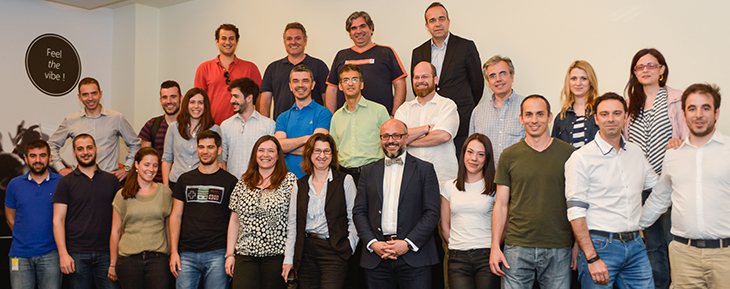
Produced byMIT Enterprise Forum
Athens, Greece.
On a rainy Friday afternoon in March, 25 startup teams pitched live to a high-profile panel of judges, mentors, entrepreneurs, and investors. The event filled the building with conversation and excitement as the early-stage entrepreneurs presented their new technologies, connecting with other members of Greece’s growing technology community.
It is hard to imagine this sort of event happened in the very same Greece covered by international news outlets. But these teams, semifinalists in the MIT Enterprise Forum Greece’s first-ever startup competition, are eager to provide a more positive picture of Greece’s future.
Six years of recession, the deepest in memory, have resulted in fear, insecurity, and anxiety. According to Endeavor Greece, an affiliate of the global entrepreneurship organization, entire sectors of business have vanished, taking with them one million jobs. Thousands of Greeks, most of them younger than 35 years old and typically highly educated and skilled, have left the country for lack of work.
The silver lining: “The crisis forced young Greeks to change their mentality and look for a new model,” says Mareva Grabowski, a former investment banker and founder of Endeavor Greece, which launched in late 2012. The new mentality is geared toward creating an export-oriented, globally focused economy driven by technology.
Global trends have made technology entrepreneurship an appealing choice for these young Greeks. The latest survey by Endeavour Greece has revealed that the number of new startup companies in the country increased tenfold between 2010 and 2013, while the capital invested in them shot from €500,000 to €42m. The growing tech industry has also excited the Greek government, which in 2013 invited Google’s executive chairman, Eric Schmidt, to discuss how Greece might harness the potential of its fledgling tech economy. Schmidt expressed his hope that Athens might become a “high-tech mecca.” This past March, 22 Greek tech startups participated in the 2015 SXSW Interactive Conference in Austin, Texas, sponsored by the Hellenic Initiative—the first time so many Greek-founded companies have appeared abroad together.
Entrepreneurship has finally been recognized as a driver of innovation, productivity, competitiveness, economic growth, and value. Greek-American entrepreneur and angel investor Marina Hatsopoulos says, “An emerging group of young Greeks who understand that innovation is the path to recovery are setting the country on a new course toward technology entrepreneurship.”
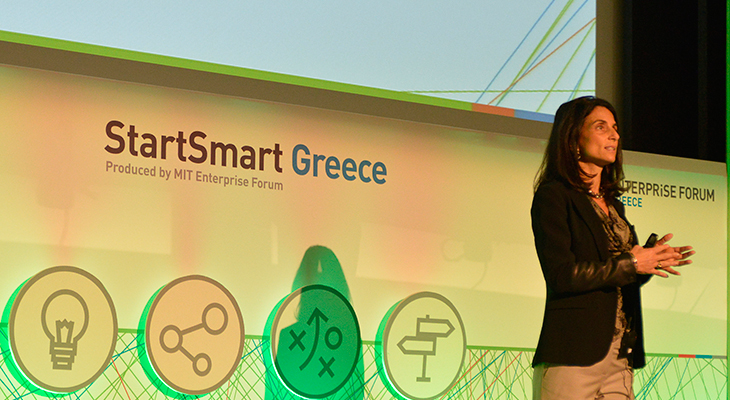
Many others feel the same way. Last fall, of the 150 countries participating in the Kauffman Foundation’s Global Entrepreneurship Week, the organizing body chose to kick off the week in Athens, Greece. Jonathan Ortmans, president of the Global Entrepreneurship Network, wrote afterwards that “the ethos of Greek youth is not that of the mindset of the country that has suffered badly throughout the global financial crisis but rather the country that can innovate its way out of its economic woes and onto the global stage.”
Greece on the Up and Up
Enthusiasm is one thing, but there is strong evidence that Greece’s entrepreneurial ecosystem has actually grown more robust in the past couple of years. According to Endeavour’s report on entrepreneurship and investment opportunities, 10% of new ventures are focusing on high-growth areas (such as tourism, energy, and information and communications technology), up from 7% a few years ago. To establish sustainable growth, it has become clear Greece needs to focus on specific sectors where it possesses some structural advantage, such as tourism, agriculture, and shipping.
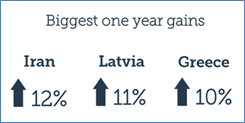
According to the Global Entrepreneurship and Development Institute (GEDI), Greece was one of the ten countries that made the greatest gains in the Global Entrepreneurship Index score from 2014 to 2015. The GEI score is a measure GEDI employs to determine the health and activity of a country’s entrepreneurial ecosystem.
There are also signs the international media might be singing a more positive tune. Journalists from the Financial Times, the Telegraph, and the New York Times have written optimistically about entrepreneurship in Greece—citing an increased interest among top Greek graduates, the growing tech scene in the country, and the increase in venture capital firms.
MIT Enterprise Forum and the Acceleration of New Startups
The most recent addition to this startup activity is MIT Enterprise Forum (MITEF) Greece, which recently announced the 25 semifinalists for its startup competition. “We are very proud of our teams; they are all so different and talented. Greece’s entrepreneurial ecosystem is still very young, and MITEF is here to help entrepreneurs grow their ideas to real viable businesses,” says MITEF Greece executive director Katerina Saridaki.
Selected semifinalists in the competition were connected with mentors and have participated in workshops on topics as diverse as making the perfect pitch, legal issues, and marketing. Unsurprisingly, the 25 semifinalists take advantage of the “high-growth” sectors identified by Endeavor—including traditional Greek industries, niche sectors that make sense in Greece (such as energy), and opportunities driven by global trends.
Innovating Traditional Greek Industries
“Traditional sectors, like agriculture and tourism, are ripe for innovation,” wrote Reuters’s Helen Coster. Judging from MITEF Greece’s selected semifinalists, Coster’s prediction is spot on. Two-fifths of the selected startups are innovating within traditionally Greek industries such as freight and tourism. Truckbird and JoinCargo for instance, are online marketplaces that help customers find shipping carriers at the most competitive price, while Trustporter matches requests to transport goods or people with people who are already traveling the requested routes.
Offerial and Tourismart both augment the hotel experience for tourists and hoteliers—the former by helping hotels increase bookings on their websites and the latter by providing a mobile interface for tourists to order hotel services such as room service, and a tablet interface for hoteliers to manage these service requests. “Our company targets the global market and the MITEF competition is a unique opportunity to get in touch with MITEF’s community all over the world, expanding our development prospects,” says Magy Kontou, cofounder of Tourismart.

They are an example of emerging tech startups in traditional Greek industries such as tourism and agriculture.
In the events industry, Eventora Connect helps companies and brands engage with consumers and attendees at trade shows and events. Sakis Triantafyllakis, CEO and cofounder of Panelsensor, a question and answer channel for event planners and attendees, said of his mentee experience during the most recent round of the MITEF competition: “Our expectations were high and we were proven right, as our mentors’ feedback and guidance helped our team improve our product and avoid potential mistakes.”
Emerging Activity in Niche Hard-Science Sectors
Beyond traditional Greek industries, there are also opportunities in niche sectors that involve the hard sciences, such as biotechnology and health care, energy, and green tech.
Five startups are focused on biotechnology and health care: Bionic Healthcare, CareAcross, Respi, RTsafe, and TomoTECH. With a strong core of academic researchers in Greece, the emergence of these startups is hardly surprising.
Energy and green tech startups include WTI Greece, a clean water system, and Lighthouse Solar Systems, a solar panel company. Although these startups are in niche sectors, the market for their technologies is global. Similarly, they are looking not just for investment abroad, but also commercialization. “Our vision is to commercialize our innovative energy solution worldwide,” says Christos Drogitis, founder of Lighthouse Solar Systems. George Michalelis, COO of WTI Greece, shared that “for the first time we had the chance to talk with an investor based in California, who had many years of experience investing in technology companies.”
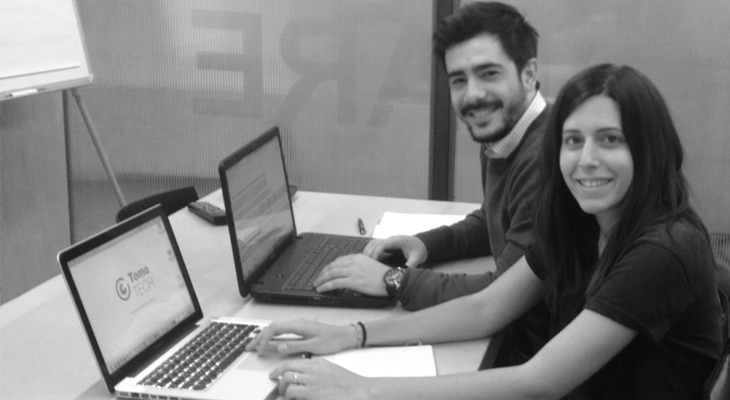
TomoTECH is an example of the burgeoning healthcare startup scene in Greece, offering a cloud-based MRI software service that provides timely and accurate diagnoses of severe chronic diseases.
Greek Startups Target Global Markets & Trends
The MITEF semifinalists also include a number of startups in big data (isMOOD, reportbrain), cloud computing (mist.io), and robotics (Sky Robotics).
These startups are already receiving global promise and attention. “We have recently been invited to join Qualcomm’s robotics accelerator, and we hope that this is just the beginning. Essentially the MITEF Greece Startup Competition prepared us for the application and interview for Qualcomm,” says Alexandros Nikolakakis, founder and CEO of Sky Robotics.
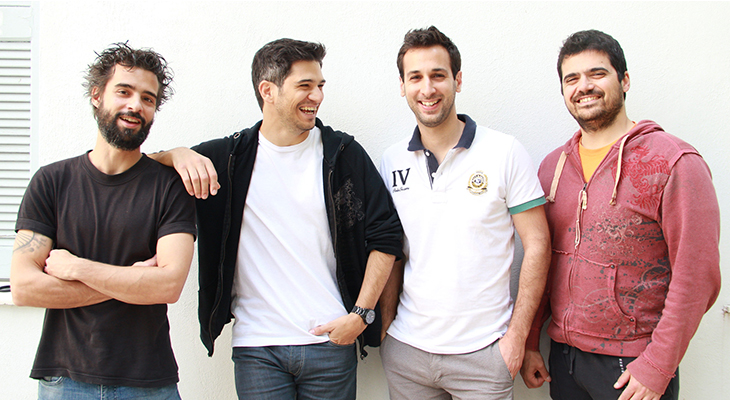
They were recently invited to join the Qualcomm Robotics Accelerator in San Diego, California.
Another global sector, information communications technology, includes startups Hermes-V and Amicapp , both of which use technology to boost safety for drivers. The first provides real-time alerts about the status of your car’s parts, as well as tracking of driver behavior, while the second enables people to record and report a car accident through their smartphone.
Many of the problems these globally focused startups are trying to tackle are in areas that do not yet have a global industry leader. For instance, Help and Win and Gridmates are both startups aimed at social responsibility—the latter enables users to donate their energy to power the homes of people in need. LearnWorlds and e-Learning Industries Ltd. - MyeTutor.org are both looking to revolutionize online learning, and they think the global market is big enough for a Greek startup to make a difference: “By 2020, the private tutoring market will be over $200 billion a year. We offer a solution that sets us apart from competition and can generate substantial investor returns while reinventing education,” concludes Athanasios Ladopoulos, founder and CEO of MyeTutor.org.
These startups are excited about taking their products beyond the borders of Greece. “Most of our clients are already in the U.S., and we plan on concentrating our growth efforts in the next few months,” says Dr. Panos Siozos, cofounder and CEO of Learnworlds. Some have already started collaborating with big players in the industry: “We have signed worldwide partnerships with Intel and Microsoft,” says Stamatis Argyros, key account manager for LiateR, a product that uses advanced gesture control and augmented reality technologies to allow customers to digitally try on and buy clothing in a variety of contexts and locations.
Vassilis Papakonstantinou, chairman of MITEF Greece, recognizes that the journey is not going to be an easy one: “The community is still very young, but there is potential here in Greece that is worth paying attention to—both by tech companies and by investors. MITEF Greece has two main objectives: we want to bring lessons of successful tech entrepreneurship to Greece, and we want to showcase successful Greek startups. We want to be there for Greek entrepreneurs—from start to finish.”
For a full description of the MITEF Greece Startup Competition’s 25 semifinalists, visit the MIT Enterprise Forum Greece website.
Keep Reading
Most Popular
Large language models can do jaw-dropping things. But nobody knows exactly why.
And that's a problem. Figuring it out is one of the biggest scientific puzzles of our time and a crucial step towards controlling more powerful future models.
The problem with plug-in hybrids? Their drivers.
Plug-in hybrids are often sold as a transition to EVs, but new data from Europe shows we’re still underestimating the emissions they produce.
Google DeepMind’s new generative model makes Super Mario–like games from scratch
Genie learns how to control games by watching hours and hours of video. It could help train next-gen robots too.
How scientists traced a mysterious covid case back to six toilets
When wastewater surveillance turns into a hunt for a single infected individual, the ethics get tricky.
Stay connected
Get the latest updates from
MIT Technology Review
Discover special offers, top stories, upcoming events, and more.